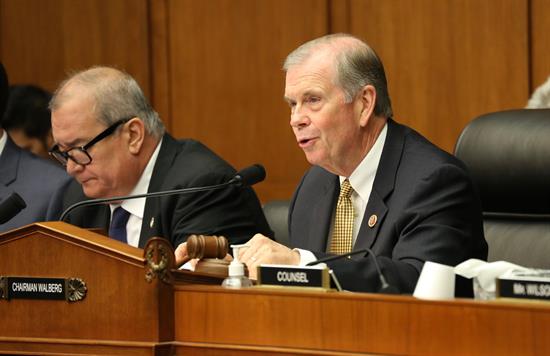In 1974, Congress enacted the Employee Retirement Income Security Act (ERISA), which governs and sets minimum standards for employee benefit plans. This landmark law has helped millions of Americans to save for retirement and to retire from work with financial stability and peace of mind.
To date, there are nearly 700,000 private pension plans covering almost 135 million participants, with approximately 92.5 million American workers actively participating in and contributing to their plans.
Private retirement and pension plans are an important benefit that employers can offer to recruit and retain employees for good-paying jobs and help workers to successfully save for retirement, but the regulations that govern retirement plan administration are beginning to show their age.
Many ERISA provisions related to retirement plan administration are in desperate need of updating, with some having last been revised over two decades ago.
Red tape and unnecessary federal restrictions stand in the way of lower costs for small businesses and have contributed to compliance uncertainty, making it harder for employers to provide their employees with retirement savings programs.
These are not the most encouraging things to hear as more Americans are retiring, and studies show that Americans should be saving more for retirement.
According to the U.S. Census Bureau, more than 20 percent of U.S. residents are projected to be age 65 or older by 2030. As an entire generation moves closer to the cusp of retirement, and as the retirement needs of all workers continue to change, employers must be equipped with up-to-date rules and guidance that make it easier to offer their employees retirement plans, not more difficult.
At today’s hearing, we will examine four bipartisan proposals to address the need to update the administration of the nation’s retirement plans:
H.R. 4604, the Increasing Access to a Secure Retirement Act of 2017;
H.R. 4158, the Retirement Plan Modernization Act;
H.R. 854, the Retirement Security for American Workers Act; and
H.R. 4610, the Receiving Electronic Statements to Improve Retiree Earnings Act.
The first proposal we will examine today, H.R. 4604, will reduce the compliance uncertainty that companies face by amending ERISA to clarify existing rules that provide a fiduciary safe harbor when selecting an annuity provider.
The second, H.R. 4158, will increase the automatic cash-out limit for retirement plans from $5,000 to $7,600, and defray some of the costs of retirement plan administration for small employers.
The third piece of legislation we will look at, H.R. 854, will eliminate two burdensome requirements affecting multiple employer plans: the “common nexus” requirement that prevents adoption of open multiple-employer plans (MEPS), in which unrelated employers may collectively satisfy plan administration requirements, and the “one bad apple” rule that punishes all employers in a plan for the failure of one employer to meet the plan’s requirements.
The final bill, H.R. 4610, authorizes the electronic disclosure of retirement plan information so that plan participants may access their plan information online.
These are just a few of the bipartisan solutions that our members are working on to simplify and modernize retirement plan administration, and benefit both employees and businesses large and small.
I look forward to hearing from our panel of witnesses and from other members of the subcommittee today as we explore these proposals to make it easier for employers to give their employees the tools they need to save for retirement.
To view the PDF, click here.
# # #

